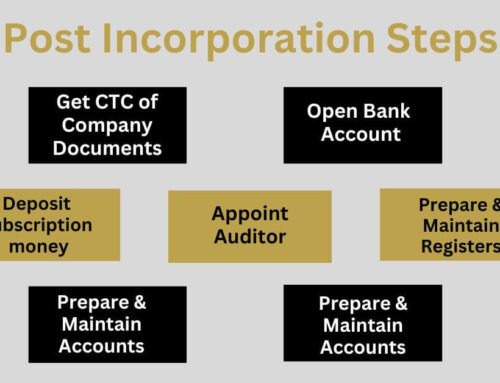If you are setting up a company, you may have faced the question about company management under the law. You may be curious about the legal requirements for the management structure and what hierarchy you should have in your company.
You may be aware that a company is a legal person (created by law), so it cannot do anything on its own therefore humans are needed for company management. The Company law in Pakistan not only provides the procedure for the creation of a company but also prescribes details about how to manage a company.
The law provides different management roles in a hierarchical form for effective management of the company. In this article, we will learn what company management structure has been provided under the Companies Act in Pakistan.
Is there any Specific Structure for Company Management?
The answer is No. There is no specific structure that all companies have to follow and you can have your own hierarchy for effective management. However, the law provides some minimum requirements for the management structure of a company.
Broadly, the structure mandated by the law has three tiers; Shareholders; the Board of Directors, and the CEO.
Since a company is owned by the shareholders who are represented in the company by the board of directors. For the management of the company, the law requires the constitution of a Board of Directors. The Board of Directors’ role is to provide strategic guidance for the company to achieve its business goals and to protect the shareholders’ rights given under the law. For effective management, the Board appoints the CEO (Chief Executive Officer as the principal officer of the company. The CEO may have a team of professionals to oversee specific functions of the company.
Role of Shareholders in Company Management
Shareholders are the persons (natural or legal) who invest their savings in the company to earn some profits periodically or expect an increase in the share value. They are the main stakeholders in the company as they have invested their money in the form of shareholding. Shareholders of a company don’t have any direct role in the managing affairs of the company. However, through resolutions in the general meetings of the company, they can play a vital role in setting the direction of the company.
The shareholders as the general body of the company have the power to elect the directors of the company. As the role of the directors is fiduciary, the law provides for their removal in case of non-fiduciary behavior or any misconduct on their part. The shareholders may by a resolution required under the law remove a delinquent director.
Secondly, the auditors of a company are appointed with the approval of the shareholders in the annual general meeting. The board is required to present the financial statements and their report before the shareholders in the general meeting. The dividend is also approved by the shareholders in the general meeting.
Role of the Board of Directors
As mentioned above, the main role of management of a company is vested in the board of directors and they are responsible for all the business activities of a company under the law. The structure of the board of directors may also have different forms based on the type of your company. The board of directors has a fiduciary duty to the shareholders to protect their investment in the company. The law requires the board of directors to perform certain roles and functions to manage the company.
The company directors either are appointed or elected under the law. Initially, they are appointed through the constitutional documents of the company and later they are elected by the shareholders. They have certain roles, responsibilities, and functions under the law and the contract of their appointment with the company.
The board of directors may meet whenever they feel appropriate for devising effective policies and for making decisions for the profitability of the company. The law requires the board of directors to meet at least once a quarter.
The board may work as a body of the whole of their number or may constitute committees to oversee different functions. If a committee of the board is constituted, it presents its report to the board of directors for approval and implementation.
Role of Chief Executive Officer in a Company
Though the overall management of a company is in the hands of the board of directors, practically, it may not be possible for the board to make themselves available at all times to run the business of the company. Therefore, they appoint the Chief Executive Officer (CEO) for the management of day to day affairs of the company. The chief executive officer works under the supervision and control of the board of directors.
The board of directors may delegate certain of their powers to the chief executive officer to effectively run the business of the company without any procedural hurdles or approvals of the board.
The chief executive officer is answerable to the board of directors, who may remove the CEO if they feel that he is not functioning and the interest of the company or has failed to manage the affairs profitably.
Other Management Officers
Apart from the above management bodies, a company may have other officers to perform specific roles required under the law. However, for certain companies, the appointment of such officers may not be compulsory.
Chief financial officer (CFO)
The chief financial officer in a company may be appointed by the board of directors or by the Chief executive officer with the consent of the board of directors as per policy. The major role of the CFO is to manage the accounts and finances of the company. He is responsible for preparing the budget and financial planning to run the company profitably. The CFO is also responsible for maintaining the books of accounts of the company.
Company Secretary
Under the law, a public company must have a company secretary who is appointed by the board of directors. The Secretary performs the secretarial function for the company and custodian of the record of the company.
He is also responsible for filing reports and returns required by the regulators under the law.
Another function of the Company secretary is to maintain the record of meetings of the board and the general meetings and correspond with the shareholders on behalf of the company.
Further, any documents to be provided to external stakeholders and regulators are certified and issued by the company secretary. All notices by the company are issued with the signatures of the company secretary.
Legal Advisor
You may be aware that in the course of business, a company deals with numerous external business partners involving legal implications. The role of legal advisor becomes very vital to secure the company from legal risks. Though not every company is required to appoint a legal advisor, it is prudent approach to have a legal advisor in the company or an external advisor to advise on legal matters.
Conclusion
Hope you have a fair idea of the company management structure, its hierarchy, and the roles assigned to each of the management functions. You may not need a specific structure for your company, yet you may have to meet some basic requirements.
Overview





























Leave A Comment